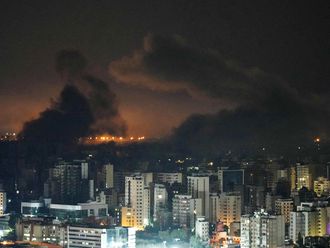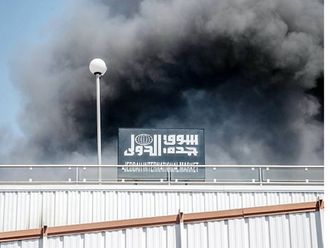
Manama: Kuwait's immigration bureau has directed to not allow maids into the country unless their sponsors had the approval from the police.
"No domestic helper should be allowed to enter Kuwait without proper documents from a local manpower agency proving that they have endorsed him or her," Al Shahed daily reported on Wednesday.
Kuwaitis and residents in the past could send the visa and the plane ticket to the recruited helper without resorting to a manpower office.
The new measures, according to unnamed sources, aims to ensure that the maids had a police clearance from their home countries.
However, several nationals and expatriates have complained that the new procedures are forcing them to pay "astronomical" sums to manpower offices, the paper said.
Around 700,000 women, mainly from Sri Lanka, Indonesia, and the Philippines, are employed in Kuwait as full-time live-in domestic workers.
In October 2009, Indonesia stopped sending domestic helpers to Kuwait, citing "concern over abuse."
The ban sparked furore in the northern Arabian Gulf country, and Fadhil Ashkanani, the head of the Kuwaiti Union of Domestic Labour Offices (KUDLO), said that it was "an insult to Kuwait as it tarnishes the country's image concerning the treatment of domestic workers."
"If a few Indonesian maids were having problems, the necessary measures could have been taken without tarnishing the reputation of Kuwait. If some labour offices are engaged in violations, this should not be generalised to reflect the entire country," he told the media.
Saudi Arabia last July passed a new anti-trafficking law that set prison sentences of up to 15 years for forced labour in a bid to tackle the dramatic issues plaguing the sector.
Riyadh is also said to be moving towards stopping the recruitment of housemaids coming from Sri Lanka, Nepal, Cambodia and Vietnam for alleged failures in the recruitment process.
"The main reason for considering such a ban is that the labour recruiters in those countries are not qualified enough to supply housemaids that suit the local culture and tradition. There is no proper selection process of housemaids to suit this market, nor are they given orientation before they leave their countries," Ali Al Quraishi, vice president of the local Labour Recruitment Committee, is quoted as saying by Saudi daily Arab News.
"Local employers have found that maids from these countries make no effort to adapt to local conditions. They do not even show any inclination to cope with local traditions and culture. We have decided to be extra-careful when dealing with such foreign labor, especially after some reports that housemaids were involved in child murders and incidents of violence," he said.
However, Saudi embassy officials in Sri-Lanka, Nepal, Cambodia, and Vietnam said that they were not aware of any likely ban on maids from the countries.
An official from the Sri Lankan Bureau of Foreign Employment (SLBFE) said that complaints of abuse reported by female migrant workers were increasing.
"Some of them have complained that they are subjected to physical abuse and harassed due to delayed or nonpayment of salaries, and made to work till late hours," the paper quoted the official as saying.
Saudi Arabia, Qatar, the UAE and Kuwait are the main markets for over 800,000 Sri Lankan maids.
"We want to discourage female migrant workers and promote males. We also now want to direct workers away from the Middle East to other markets like the European Union, Canada, Australia, South Korea and Japan," the official said.












